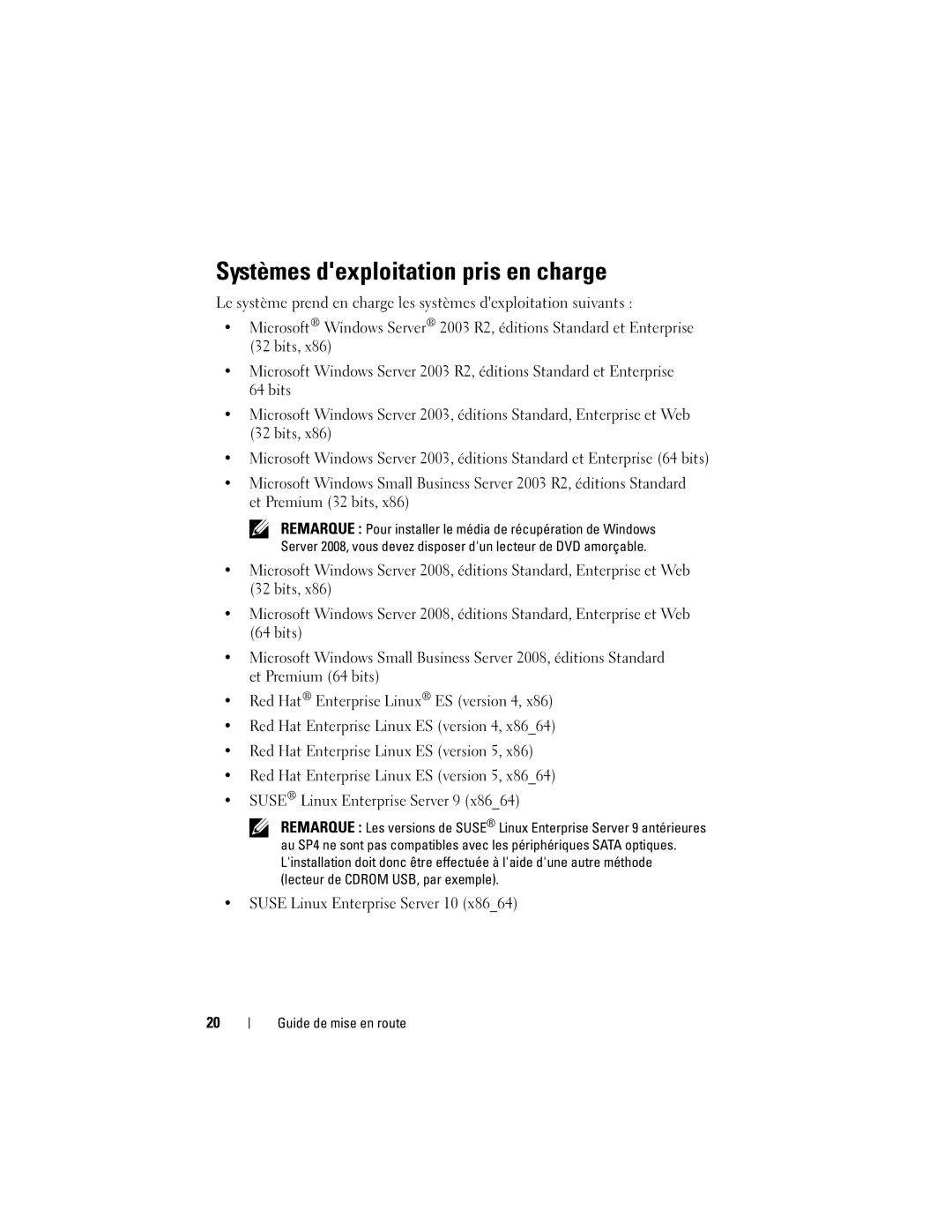Systèmes d'exploitation pris en charge
Le système prend en charge les systèmes d'exploitation suivants :
•Microsoft® Windows Server® 2003 R2, éditions Standard et Enterprise (32 bits, x86)
•Microsoft Windows Server 2003 R2, éditions Standard et Enterprise 64 bits
•Microsoft Windows Server 2003, éditions Standard, Enterprise et Web (32 bits, x86)
•Microsoft Windows Server 2003, éditions Standard et Enterprise (64 bits)
•Microsoft Windows Small Business Server 2003 R2, éditions Standard et Premium (32 bits, x86)
REMARQUE : Pour installer le média de récupération de Windows Server 2008, vous devez disposer d'un lecteur de DVD amorçable.
•Microsoft Windows Server 2008, éditions Standard, Enterprise et Web (32 bits, x86)
•Microsoft Windows Server 2008, éditions Standard, Enterprise et Web (64 bits)
•Microsoft Windows Small Business Server 2008, éditions Standard et Premium (64 bits)
•Red Hat® Enterprise Linux® ES (version 4, x86)
•Red Hat Enterprise Linux ES (version 4, x86_64)
•Red Hat Enterprise Linux ES (version 5, x86)
•Red Hat Enterprise Linux ES (version 5, x86_64)
•SUSE® Linux Enterprise Server 9 (x86_64)
REMARQUE : Les versions de SUSE® Linux Enterprise Server 9 antérieures au SP4 ne sont pas compatibles avec les périphériques SATA optiques. L'installation doit donc être effectuée à l'aide d'une autre méthode (lecteur de CDROM USB, par exemple).
•SUSE Linux Enterprise Server 10 (x86_64)
20
